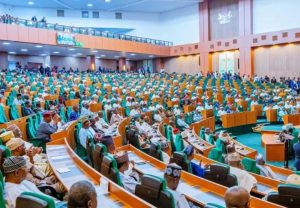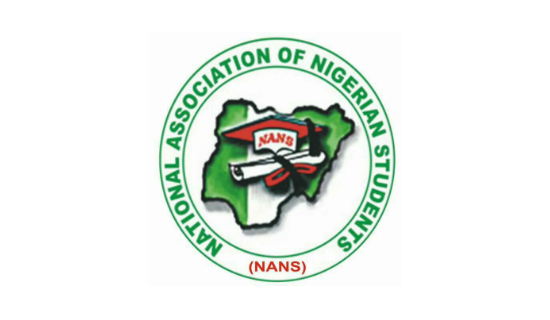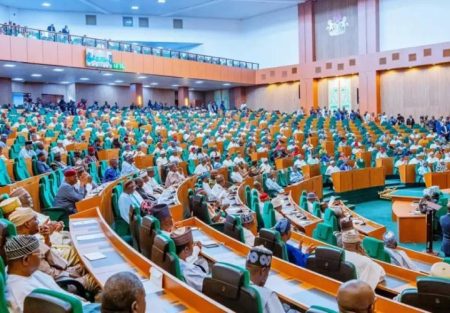The simmering tension between the Academic Staff Union of Universities (ASUU) and the Federal Government of Nigeria has once again reached a boiling point, threatening to disrupt the nation’s tertiary education system. ASUU, citing the government’s persistent failure to honour agreements and address critical issues plaguing universities, has issued warnings of another nationwide strike. This looming threat has sparked outrage and anxiety among Nigerian students, represented by the National Association of Nigerian Students (NANS), who have vowed to cripple the country’s infrastructure if the government fails to avert the impending crisis. The students, weary of the recurring cycle of strikes and the devastating impact on their academic pursuits, have demanded immediate action from both the government and ASUU to resolve the long-standing impasse.
At the heart of the dispute lies the government’s alleged failure to implement the recommendations of the Yayale Ahmed report, a document that encapsulates years of negotiations and agreements between ASUU and the government. The report addresses crucial issues such as sustainable funding for universities, the contentious Integrated Payroll and Personnel Information System (IPPIS), unpaid salaries and allowances, and the erosion of university autonomy. ASUU insists that the implementation of this report is the key to restoring industrial peace and ensuring the revitalization of the university system. The union’s zonal coordinators across the country have echoed this sentiment, highlighting the deplorable conditions in universities, including overcrowded classrooms, dilapidated infrastructure, and the brain drain caused by poor remuneration and working conditions.
NANS, sharing the lecturers’ frustration, has expressed solidarity with ASUU’s demands while also criticizing the union’s reliance on strikes as a primary tool of engagement. The student body recognizes the detrimental effects of strikes on the academic calendar, the prolonged duration of studies, and the overall quality of education. They have urged ASUU to explore alternative means of negotiation while simultaneously pressuring the government to fulfil its obligations. NANS has threatened to mobilize students for massive nationwide protests, targeting critical infrastructure such as roads, airports, and government offices, if the impending strike is not averted.
The government’s perceived insincerity and endless promises have further fuelled the students’ anger. NANS argues that the brunt of the strike action is borne by the children of ordinary Nigerians, while the children of government officials and politicians continue their education uninterrupted in private universities or institutions abroad. This perceived injustice has strengthened their resolve to hold the government accountable for the deteriorating state of public universities. They have demanded an immediate end to the “endless promises, excuses, and insincerity” and a concrete commitment to addressing the issues raised by ASUU.
The specific demands of ASUU revolve around several key areas. Firstly, the union insists on the implementation of the 2009 ASUU-FGN Agreement, which addresses the sustainable funding of universities. They also demand the payment of outstanding salaries, allowances, and promotion arrears, highlighting the financial hardship faced by their members. The union continues to reject the IPPIS payment platform, advocating for the adoption of the University Transparency and Accountability Solution (UTAS), which they claim is better suited for the university system. ASUU also condemns the government’s interference in university autonomy, citing the unlawful dissolution of governing councils as an example.
Further exacerbating the situation is the government’s recent introduction of the Tertiary Institution Staff Loan Scheme, which ASUU has vehemently rejected. The union views this scheme as a condescending gesture that fails to address the fundamental issue of an outdated salary structure. They argue that offering loans to already financially burdened lecturers is a mockery of the university system and a diversionary tactic to avoid implementing a new salary scale. ASUU has described the loan scheme as a “poison chalice” and has urged its members not to participate.
With both ASUU and NANS expressing their discontent, the upcoming meeting scheduled for August 28, 2025, has been touted as a decisive moment. Both parties have made it clear that this meeting represents the last opportunity for the government to demonstrate its commitment to resolving the crisis. ASUU has warned that failure to reach a satisfactory agreement will inevitably lead to another nationwide strike, potentially crippling the academic calendar and further jeopardizing the future of Nigerian students. NANS, on the other hand, has promised to unleash nationwide protests, bringing the country to a standstill if the government fails to act decisively.
The situation remains precarious, with the future of Nigerian tertiary education hanging in the balance. The government’s response to the demands of both ASUU and NANS will determine whether the country can avert another disruptive strike and embark on a path towards revitalizing its university system. The August 28 meeting looms large, carrying the weight of expectations and the potential for either resolution or further escalation of the crisis. The stakeholders involved – the government, ASUU, and NANS – bear the responsibility of finding a lasting solution that safeguards the future of Nigerian education.














